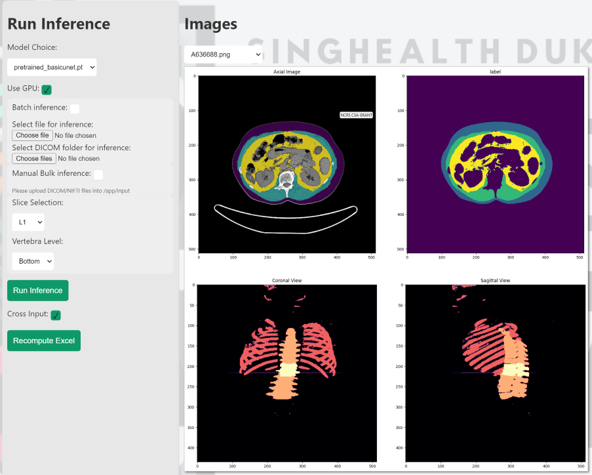
Fully automated, U-net based, AI program on Docker for 2D-fat and muscle segmentation on CT scans.
Funded by SGH Research Grant, PI: Keefe Lai
Developed with Mohammad Sufyan bin Amirhamzah, Dept of Data Science
Medical imaging contains a wealth of incidental body composition data which informs us of the background health of a patient. These include muscle mass, vertebral bone density and visceral fat, with pathological correlates of sarcopenia, osteoporosis and obesity. Unfortunately, this is not routinely commented on in radiology reports due the laborious work required to extract them.
The Disease in Body research group aims to develop means to automatically extract and quantify body composition metrics, and in conjunction with clinical data, develop models to predict disease states and health outcomes. This can enhance clinical decision making. For example, if severe frailty is detected in pre-operative imaging, clinicians can be pointed to send patients for pre-habilitation and nutritional support to optimise their reserves, potentially preventing post-operative complications and prolonged stay.
In partnership with the Dept of Data Science (DDS) and Data Science and Artificial Intelligence Lab (DSAIL), we have developed models to automatically quantify fat and muscle on CT scans and combined this with traditional peri-operative risk scores to predict risk of prolonged length of hospital stay post colorectal cancer surgery. In addition, we have a wide range of research collaborations and a healthy pipeline of projects.
If you are keen on finding out more, kindly contact Dr Keefe Lai/Sufyan at mohammad.sufyan.b.a@singhealth.com.sg.
